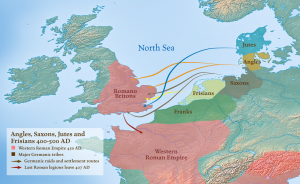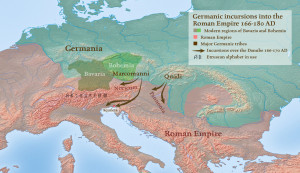As the sounds of English evolved in the 7th century, the first English scribes began to write the language with the Roman alphabet. But the English scribes had to invent ways to represent the unique sounds of Old English. In this episode, we explore the first English alphabet and the lingering effect of that alphabet on modern English spellings.
Podcast: Play in new window | Download
Subscribe: RSS



